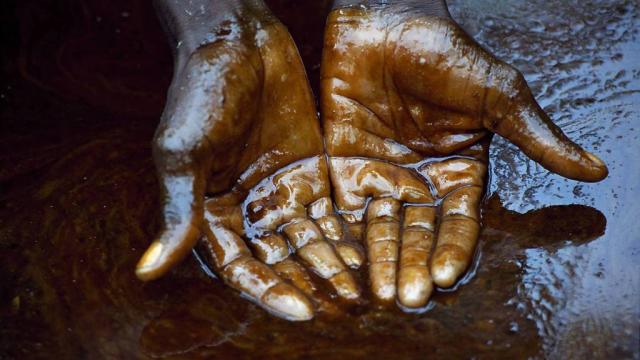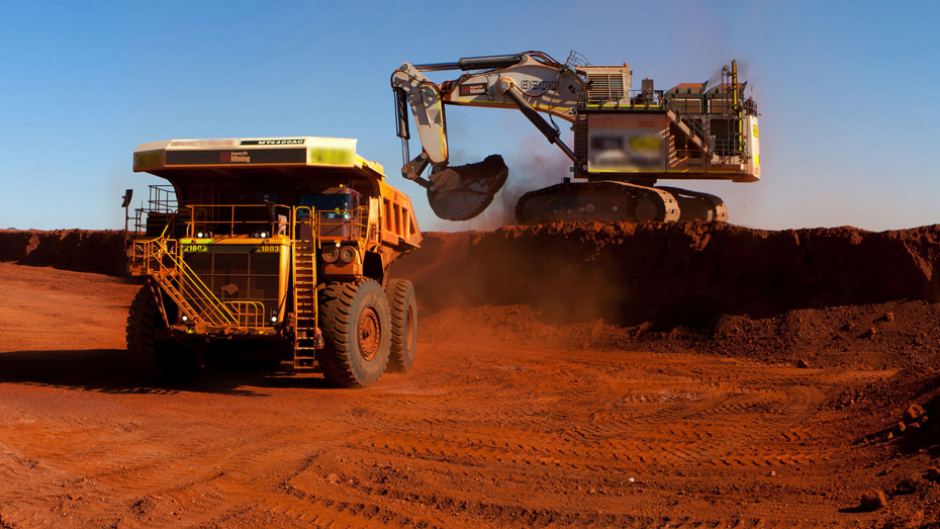
In Part I of this article last week, I laid out seven ways a more volatile global climate could send the world financial system into meltdown. Now, we explore the need to break the ideological hold of Big Oil, which is driving climate change, and Big Finance, which suppresses society through similar mechanisms.
The 2008 crisis was in many ways caused by economic inequality, over-indebtedness and the power of finance. The measures to stabilize the system in the short term have, in turn, worsened inequality, increased debt burdens for the majority and further empowered finance. In essence, we have encouraged a parasite that was already bloated to gorge deeper into the economy.
Society must break its subservient relationship to big finance. Simultaneously, we also need to take the strongest measures to slow down and mitigate against climate change. This means ending our dependence on Big Oil – a prospect that itself makes the financial system more vulnerable.
The term Resource Curse was coined in the 1950s to explain the paradox of resource-rich countries suffering economic stagnation. Oil-rich states are a key example: crude gives the government a steady stream of income through tax and/or corruption, so government doesn't need to actually improve economic conditions for the majority. These states – especially rich oil states – frequently develop a cosy relationship with Western governments and companies. More often than not they purchase arms from the West, using these to commit grave human rights violations. The world’s historically most oil-rich country, Saudi Arabia, shows the worst consequences of the Resource Curse.
The Finance Curse is a new concept from the U.K. Tax Justice Network. It highlights how countries over-dependent on finance suffer similar problems as resource dependent countries. Wall Street, the City of London and other financial capitals portray themselves as drivers of national GDP, but reality disagrees. Finance often overwhelms other industries – for instance, by causing a massive brain-drain. An example: scientists could create something socially constructive, but end up creating complex derivatives to profit the financial elite.
Another damaging impact is systemic fraud, often in the form of tax evasion. The Finance Curse also ties the economy into a boom-bust cycle. A fourth major problem is corruption and political capture, as the state works in the interest of bankers against the broader public's interest.
Today's globalization means both curses have shaped the dominating political and economic system. Big Oil and Big Finance both have a strong grip on politics and politicians. Fossil fuels acquisition is viewed as a priority for any country, as it powers a great deal of the productive economy. At the same time, fossil fuel investments represent a core injection of money into the financial sector. Nearly 20 percent of City of London investments are in four oil majors.
In the U.S., Wall Street investments rely heavily on oil companies such as ExxonMobil, whose market capitalization (supposed value) was recently recorded at around $o.35 trillion. Additionally, the apparent need for oil – defined as a key national interest – is an innuendo that justifies perpetual oil-based imperial wars.
Another self-reinforcing cycle for Big Oil, Big Finance and capitalism at large is that they pivot around hard-to-understand ideas. Economic theories are often presented to the public as absolute truths. Either that, or the public is told to leave the thinking to the "experts." Parallels can be drawn to the Medieval Church preaching in Latin. After all, it's hard to question something when you do not even know what it means.
All of this boils down to an "Economics for the 1%," as critical economist John Weeks sets out in the book of that title. This economics is full of mantras, myths and lies. Throughout the last 30 years, there has been little space to imagine a world not built on infinite growth, not under the control of markets, and which does not view the profit motive as sacrosanct.
When we consider who owns and controls mainstream media (or for that matter political parties), it is no wonder those institutions frequently uphold the status quo. Even the supposedly balanced and non-biases BBC has a banker from HSBC at the helm, Rona Fairhead, who heads the BBC Trust.
Looking critically at the mainstream media exposes blatant examples of corruption – not least when media owners with fossil fuel assets publish climate denial reports. But additionally, something more subtle is at play. Corporate sponsorship and advertising also encourages mass media not to bite the hand that feeds it. The barrage of advertisements also push the message on the public: keep consuming and don't question.
The 1%’s power to shape the narrative at a time of crisis is also crucial. During the 2007-8 crash, corporate media and politicians went into overdrive to create a sense of doom if the banks truly collapsed. Little discussion was given to creating a system that works for everyone. The message was clear: if we do not save the banks, we face catastrophe on a 1930s Great Depression magnitude.
U.K. Prime Minister Gordon Brown began the policy of giving state assistance to banks in 2007. A year later, in October 2008, George W. Bush followed suit with a $700 billion U.S. bailout plan pushed through Congress under the banner: "Our entire economy is in danger." Days later, the U.K. gave £500 billion ($850 billion) worth of assistance to City of London institutions.
The largest ever giveaway to the rich passed with little immediate outcry. After announcing Britain’s bailout, Brown’s approval rating saw short-term gains. Mainstream news lauded him a "world leader." In the U.S., half of those polled by Gallup straight after the U.S. bailout thought it was a “good thing." In effect, swathes of society suffered a collective Stockholm syndrome: they sided with their captors, the bankers.
Thinking about another financial crash, it seems likely the corporate machine will use same means at its disposal to maintain the system. But repeating what happened after the 2008 crash will be far more difficult this go-around. Society has hindsight about how the bank bailouts made a bad situation worse. There has been wave after wave of protest, direct action and new thinking developing the means to make another world possible. Perhaps most importantly, the way that the climate crisis and the financial crisis combine have revealed one stark reality: we either create a system change, or face systemic crash.
3 WAYS TO SHOW YOUR SUPPORT
- Log in to post comments

















Comments
DH Fabian replied on
The power to bring change, to
The power to bring change, to push back against corporate power, has been in the hands of the middle class every step of the way. They have had the money and means to organize and push back.
Unfortunately the mess we're in is the result of policies that the middle class demanded or supported, from Reagan's deregulation mania to Clinton ending actual welfare aid. We created an abundant surplus of job-ready people who are desperate for any job at any wage -- grateful for the chance to replace you for less than you are paid. There's nothing to fall back on.